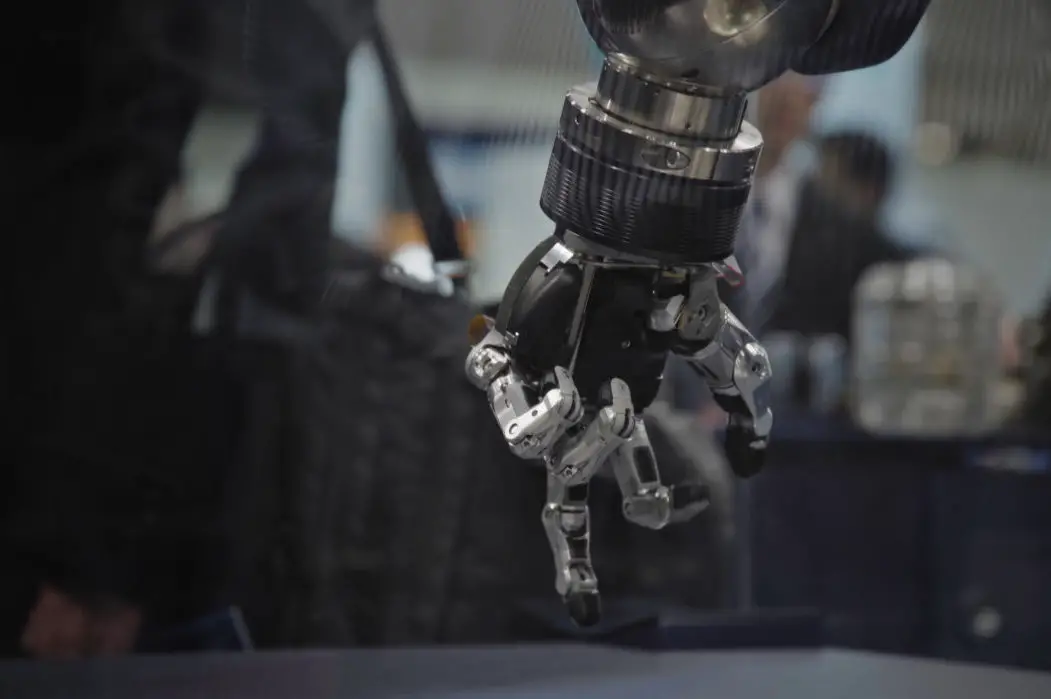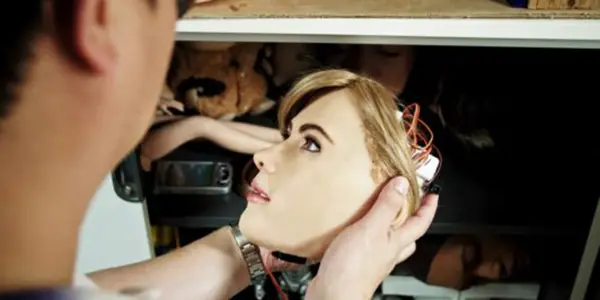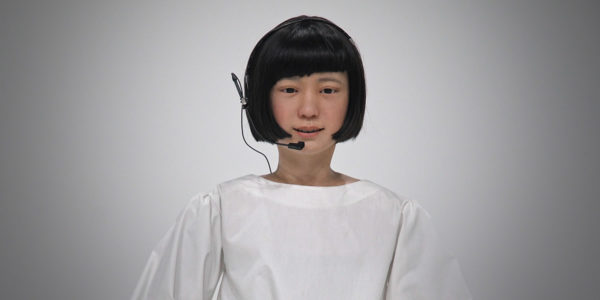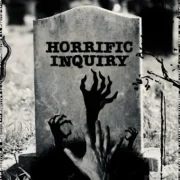THE TRUTH ABOUT KILLER ROBOTS: The Stylized Paranoia Of Our Contemporary Dystopia

Matthew Roe is a director, writer, producer, film critic, theorist…
The fears of automation and the rise of artificial intelligence have shadowed mankind’s progress since Samuel Butler first posited the possibility of conscious machines in his 1872 satire Erewhon, following on the heels (and noting the trends) of the Industrial Revolution. Now, 146 years later, massive mechanical systems with incredible capacities permeate almost every sphere of modern everyday life.
As human beings are now continually shunted to the ends of production lines with fewer considerations, we must ask ourselves again: As they already heavily impact our present, how will intelligent machines affect our future? Maxim Pozdorovkin contextualizes this ongoing debate into a trio of documentative vignettes, focusing on cases where machines have actually killed humans, in order to explore the metaphorical entropy of modern society.
Hyper-charged with a thoroughly unique audio/visual aesthetic and daunting subject matter, The Truth About Killer Robots takes a hard look on the displacement caused by automation and the ubiquitousness of technology as humanity continues to race towards a eerily uncertain future.
Who Killed Whom?
Separated into three distinct chapters, the film begins with an almost surgical focus on the infamous 2015 Volkswagen automotive worker death, where the damages of severe automation can already be felt in poverty-ingrained, work-strapped neighborhoods around the world. The film also traipses through deaths caused by Tesla self-driving cars, and the increased desocialization and spatial cognitive dissonance being self-perpetuated by our complete reliance on “smart” technology.
While interviewing trade workers, programmers, scientists, and even philosophers, the film is also hosted by a humanoid animatronic narrator, further cementing Pozdorovkin’s seeming desire to entrench audiences into the uncanny valley under a heaping mountain of techno-driven paranoia – as if Black Mirror has finally become a legitimate reality, and it’s just as unsettling as we had feared.

Sociological issues bloom ever larger as workers are replaced with machines, and tactile human-to-human contact is discarded for electronic interfaces; the film paints a darkly cynical view of the present world and the trends that we are clearly following into the future. This isn’t a film centered on the amazing possibilities that artificial intelligence can give us, while maintaining a cautious optimism about its implementation. This isn’t a call for greater investment in human resources over machinery as a way to preserve the viability of our collective civilization. This is a dirty exposé on the effects these bright-eyed possibilities are currently reaping on global communities, regardless of how neutral the core science behind this relegation may outwardly appear.
Asimov Fever Dreams
Though this isn’t the first film to approach the topics of automation displacement and developing AI, how Pozdorovkin approaches the subject is something completely unique to this particular cinematic experience. Much like his previous film Our New President (2018), which highlighted the effects of fake news, state-controlled media, and misinformation, The Truth About Killer Robots adopts a highly stylized perspective that plays out much more like a dystopian science-fiction story than a traditional documentary; an impression confirmed to me by the director in a recent interview.
The combination of industrial noise and minimalist music throughout frenzied montages of eldritch imagery continually perpetuate a general unease and a mistrust of what we are being told and shown. The film isn’t just spotlighting the aspects of this weathered argument that the filmmakers wished to make a point about, its format suggests the dystopia we have continually feared has been right here amongst us for generations.

One consistent through-line that is returned to throughout the film’s brisk run-time is Isaac Asimov‘s “Three Laws of Robotics”, which first appeared in the 1942 science-fiction short story Runaround. These laws have moved from sci-fi to being the actual blueprint from which modern robotics and AI developers have striven to base their science; however, the film reveals that programming machines by these laws, and robots actually following them to the letter, are almost exclusively different challenges. The film does not take any particular stance on this revelation, but it does make it a point to acknowledge the ongoing issue of robots being (possibly) inherently dangerous to humankind.
The Truth About Killer Robots: Conclusion
Though the frantic and uncanny visual aesthetic and structure may turn off more conventional fans of documentary filmmaking, the film’s ambiguousness and excellent expounding of its vivid futurist subject matter make it one of the more essential entries into the discussion over artificial intelligence. Overflowing with general unease, exhaustive research, and justifiable paranoia, this docu entertains and educates in equal measure.
Though its unusual composition and approach may result in its exclusion from the catalog of other relevant (more traditional) films involved in this discussion, The Truth About Killer Robots is an essential part of the ever-evolving debate as to where our civilization currently is, and where it may ultimately be heading.
The Truth About Killer Robots premiered on HBO, November 26, 2018.
What do you think about how artificial intelligence and automation have impacted humanity? Discuss in the comments!
Does content like this matter to you?
Become a Member and support film journalism. Unlock access to all of Film Inquiry`s great articles. Join a community of like-minded readers who are passionate about cinema - get access to our private members Network, give back to independent filmmakers, and more.
Matthew Roe is a director, writer, producer, film critic, theorist and historian, with over 12 years experience producing film, video, television, and online content. He currently writes DVD/Blu-ray reviews for Under the Radar Magazine, movie reviews for Film Threat, and contributes features to the Anime News Network. He has won two Vollie Television Awards, an Honorable Mention at the LA Movie Awards, and is a Cult Critic Award Finalist. Matthew is a member of the Political Film Society and the Large Association of Movie Blogs.












